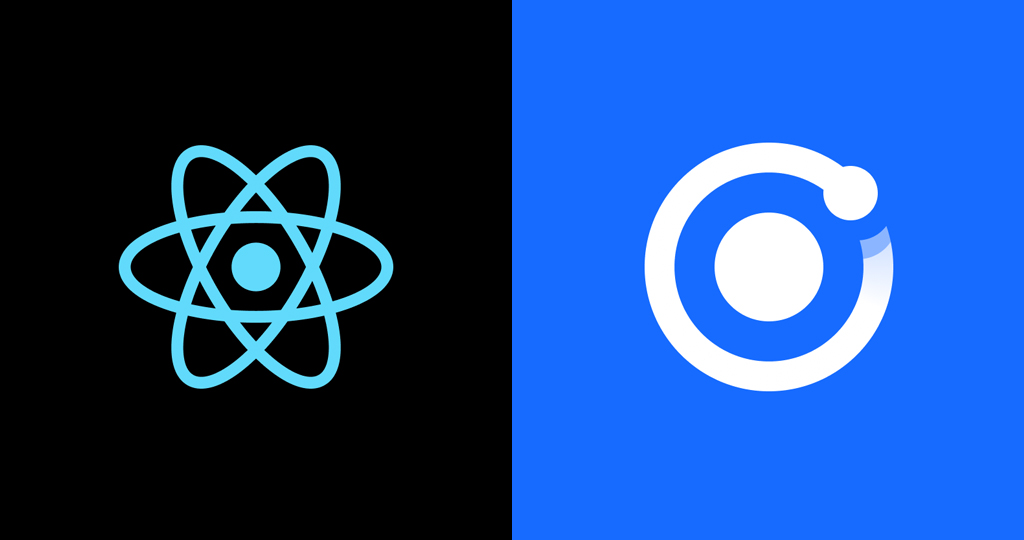A growing number of smartphone users is causing the mobile application development industry to boom. There are a few key elements that we need to consider when creating applications to ensure their success: Features, complexity, UX/UI design, backend, frontend, development talents, and more. Entrepreneurs are now increasingly interested in hybrid applications. It is because it enables widespread user targeting across several platforms.
Ionic React and React Native are the two main frameworks used in the React ecosystem to create cross-platform mobile apps. Before deciding on one of these, it's crucial to understand how the two differ in terms of their objectives, capabilities, and features. It would be helpful as a deciding factor; this blog compares the popular frameworks Ionic vs. React Native based on several factors. This blog addresses the dilemma that ambitious business owners face: Which cross-platform framework, Ionic vs. React Native, is preferable for developing corporate apps?
What is Ionic?
Ionic is a popular open-source framework for building hybrid mobile applications using web technologies such as HTML, CSS, and JavaScript. Ionic provides a library of pre-built UI components, such as buttons, lists, and tabs, that can be used to create a visually appealing and responsive user interface. It also provides access to native device features, such as camera, GPS, and contacts, using plugins.
Ionic is built on top of Angular, a popular JavaScript framework, but it can also be used with other frameworks such as React or Vue. It uses Cordova or Capacitor, which are native runtime environments, to allow developers to access native features of the device. This significantly reduces development time and cost and allows businesses to reach a wider audience. Overall, Ionic is a robust framework for building hybrid mobile apps quickly and efficiently and is a popular choice among developers for its ease of use and flexibility.
What is React Native?
React Native is a popular open-source framework for building mobile applications that allow developers to use React and JavaScript to create native mobile apps for iOS and Android platforms. React Native allows developers to write code once and deploy it to multiple platforms, resulting in faster development and lower costs. It uses a similar syntax and structure to React, which makes it easier for developers who are already familiar with React to build mobile apps.
React Native utilizes native components, such as text, images, and buttons, to create a responsive and efficient user interface. It also allows developers to access native features, such as camera, GPS, and notifications, which provides a better user experience. Both React vs. React Native has gained popularity due to their ability to create high-quality apps quickly, reduce development costs, and provide a seamless user experience across platforms.
Difference Between React Native and Ionic
It is not necessary for a framework that works for one startup to be ideal for another because every business has various needs and hires custom mobile app development companies with varying degrees of experience. Like React, React Native for web apps enables the creation of hybrid mobile apps using Javascript and the React framework. Regardless of the option, you'll have a single codebase written in a single language that can be translated into cross-platform mobile apps. In this blog, we'll discuss the top qualities that programmers typically consider when evaluating frameworks.
Programming language
React Native: React Native is the most popular programming language among developers because it is built on JavaScript, one of the most dynamic and widely used languages for creating hybrid apps. Also, this framework is supported by Facebook and combines the benefits of JavaScript and React. React Native stands apart from other programming languages thanks to a significant advantage. It allows developers to occasionally write a few components in Swift, Objective-C, or Java.
Ionic: Ionic accesses the Cordova Wrapper to use native platform controllers while developing and running applications using various technologies (including HTML5, CSS, and JS). While utilizing TypeScript, we may additionally enhance the code's quality.
Implementation and reuse of the code
React Native: A same code base may be used to create several apps for different platforms, including Android, iOS, and Windows. This is the fundamental tenet of producing code with React Native. This will make it easier for developers to create better applications faster.
Ionic: The benefit of reusing the code base for different apps is provided by Ionic's straightforward motto, "one code base, any platform." Developers may quickly create highly interactive applications by utilizing the same code base.
Performance
React Native: By utilizing native APIs and components, this framework enables us to create applications that have a native user interface.
Ionic: Unlike other frameworks, Ionic makes use of cutting-edge web technologies, such as JavaScript, HTML, and CSS, to aid in the development of high-performing hybrid apps. However, to provide our program with a native cover, plugins, and outside packages are needed.
User experience
React Native: React Native uses React libraries, which provide fantastic UI, to create an experience similar to a native app.
Ionic: Ionic entirely relies on web technologies, such as HTML and CSS, to give an experience similar to that of a native app, but it also uses Cordova to mimic the look and feel of native apps.
Cost of creating an app
React Native: This open-source framework gives programmers free access to many libraries. The best way to get the most out of this framework is to collaborate with a seasoned software development firm.
Ionic: This is a cross-platform mobile app framework that is open-source and free to use, but the premium version is required for a professional development environment. Iconic Pro, however, can quickly speed up the creation process. hence making it more straightforward for developers to design a real-time application.
Conclusion
Whether are you confused about React Native or Ionic React? Both Ionic React and React Native are excellent options for creating mobile applications. React Native might be a better option for teams who are only targeting iOS and Android, have more experienced JavaScript developers, and have access to a repository of native controls. Ionic would be the ideal option if you require to construct an app quickly and have ready code. Conversely, React Native would be your best choice if you wanted to create a high-performance app with a feature-rich UI and fantastic user experience. As a business owner, the following step is to gather the best developers to work on your app requirements once you have made the proper choice. At Way2Smile Solutions, we are the best and most reputable mobile app development company in Dubai. Connect with us to discover a detailed road map for finishing your ideal app project.







